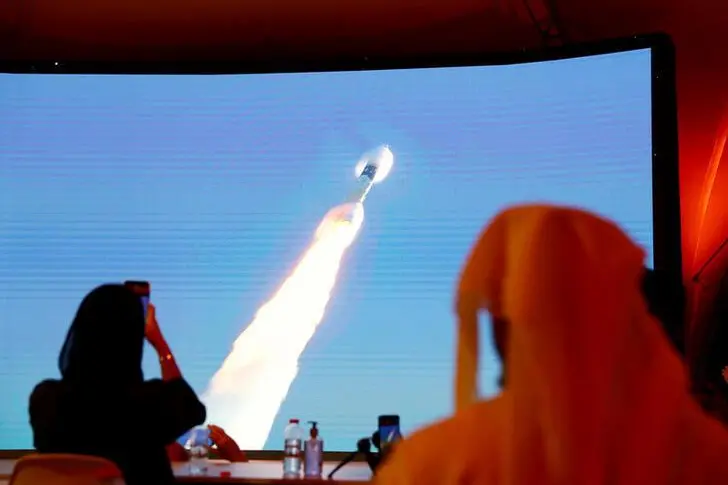PHOTO
The Mohammed Bin Rashid Space Centre (MBRSC) today announced that the analog astronauts are continuing with their training ahead of the first UAE analog mission that’ll commence next month.
Abdalla AlHammadi and Saleh AlAmeri’s training involves docking a spacecraft with the International Space Station (ISS), driving a Lunar rover and participating in sports, along with medical, psychological and Russian language tests.
Members of the Crew One – the recently chosen two analog astronauts – will be training in Russia from November onwards.
An eight-month analog mission will be conducted at the NEK ground-based analogue facility in Moscow. The crew participating in the UAE Analog Mission#1 will have a primary and a backup, respectively.
They will embark on a journey to simulate space-like conditions on the Earth at the NEK ground-based analogue facility in Moscow alongside other participants from different countries.
The mission is part of the Scientific International Research in Unique Terrestrial Station (SIRIUS) 20/21 and will focus on studying the effects of long-duration isolation and confinement on human psychology and physiology.
Experts said the UAE would be able to contribute to understanding the science behind such missions.
During the mission the Crew One astronauts will conduct over 60 different experiments across a wide range of physical, psychological, immunological and other tests.
Shedding light on the challenges that lay ahead during their training in Moscow, Russia, Saleh AlAmeri earlier opined, “We have many challenges during the mission and before the mission. One of the challenges is that in Moscow we experience a new culture, language and we will be interacting and dealing with many people from various nationalities. So, that according to me is one of the biggest challenges. The other challenge is about conducting all the experiments successfully and completing the mission without having any injuries.”
Analog astronaut Abdallah AlHammadi, opined, “One challenge would be to do the experiments successfully, get proper results and transfer that data for the use of the public.”
Experts also highlighted a lot of the mission’s tasks will aim to look at survival on Mars. They will look into how the human body reacts on Mars, testing astronauts psychologically and physiologically to preempt the daily life that the astronauts will have on Mars, during future missions to the Red planet.
Shaikha AlFalasi, Science Lead, Analog Mission, explained, “experiments are based on the mission. The bigger challenges are the medical implications of isolation are very hard on the human body. A typical journey in outer space and going to Mars will range from seven to eight months. So that’s like a simulation of the actual mission, take off, landing etc. That’s the objective of the mission’s scenario.”
Thus, the mission of simulating life in space is of great importance, as it enables us to ensure the safety and health of astronauts during long-term space exploration trips.
Adnan AlRais, Mars 2117 Programme Manager, MBRSC said, “there are so many challenges when it comes to sending humans to Mars and surviving that long journey to Mars and then being able to land there and finally conduct different experiments. Through the UAE Analog Mission we try to understand the impacts of the long journey on how the team works and what are the main science and technology challenges. These are the challenges and the research areas that we are trying to focus on here at the MBRSC as part of the MARS 2117 programme.”
Copyright © 2021 Khaleej Times. All Rights Reserved. Provided by SyndiGate Media Inc. (Syndigate.info).





















